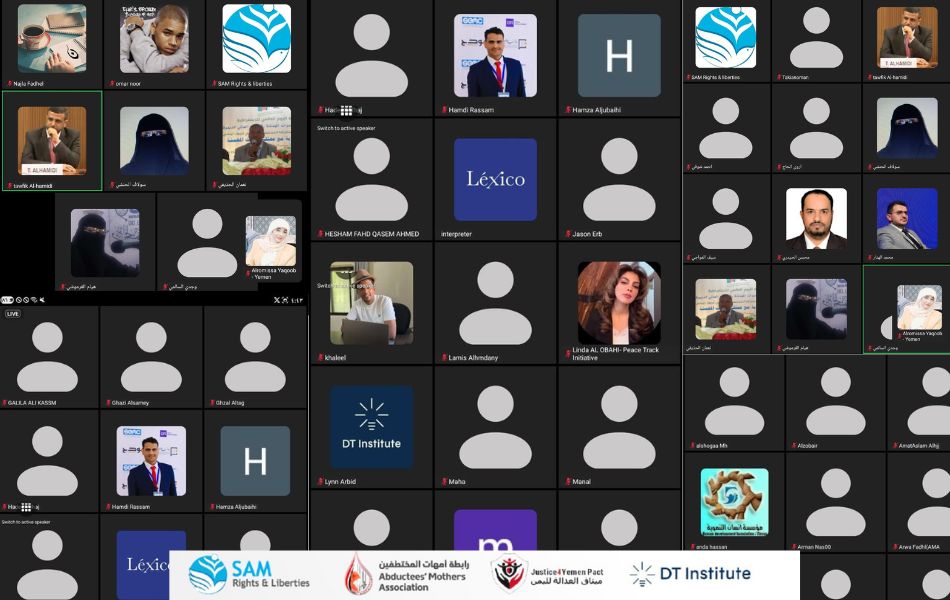
SAM Organization for Rights and Liberties, in partnership with the Abductees’ Mothers Association and with support from the DT Institute under the SPARK Project, hosted a webinar on the inclusion of women, youth, marginalized groups, and persons with disabilities in Yemen’s transitional justice process. The event brought together leading legal experts, activists, and community leaders.
Ms. Maha Awadh, Chairperson of the Ajwad Foundation for Peace and Human Security, opened the discussion, emphasizing that women are among the most affected by the conflict but are also key to leading peace processes. She stressed that transitional justice cannot be comprehensive without addressing women’s issues and recognizing the serious violations they have endured. Including women in truth and reconciliation commissions strengthens their rights as equal citizens and helps rebuild trust between the state and society.
Ahmed Shawqi, Director of Taiz Radio and member of the Yemeni Center for Transitional Justice, highlighted that youth—who make up 70% of Yemen’s population—remain largely excluded from decision-making. He noted that young people have been directly impacted by the conflict through marginalization, forced recruitment, and the collapse of education and the economy. Shawqi called for their inclusion in truth-seeking and reconciliation mechanisms, emphasizing that political and economic empowerment of youth is essential to shaping a forward-looking, inclusive national narrative.
Mr. Nouman Qaed Al-Hudhaifi, President of the Union of the Marginalized, stressed that historically marginalized communities—over five million people—continue to face systemic discrimination. He called for reparations programs that acknowledge decades of exclusion and ensure political and social representation, alongside national policies to combat discrimination.
Ramisa Yaqub, President of the National Network for Advocacy of the Rights of Persons with Disabilities, highlighted that more than 15% of Yemen’s population now live with disabilities due to the war. She stressed that their participation in transitional justice is not only a moral obligation but a fundamental human right, requiring direct representation and specialized reparation and rehabilitation programs.
The webinar concluded with a clear message: transitional justice in Yemen must fully include women, youth, marginalized groups, and persons with disabilities. Excluding these groups undermines the legitimacy and sustainability of the process and prevents genuine, lasting national reconciliation.